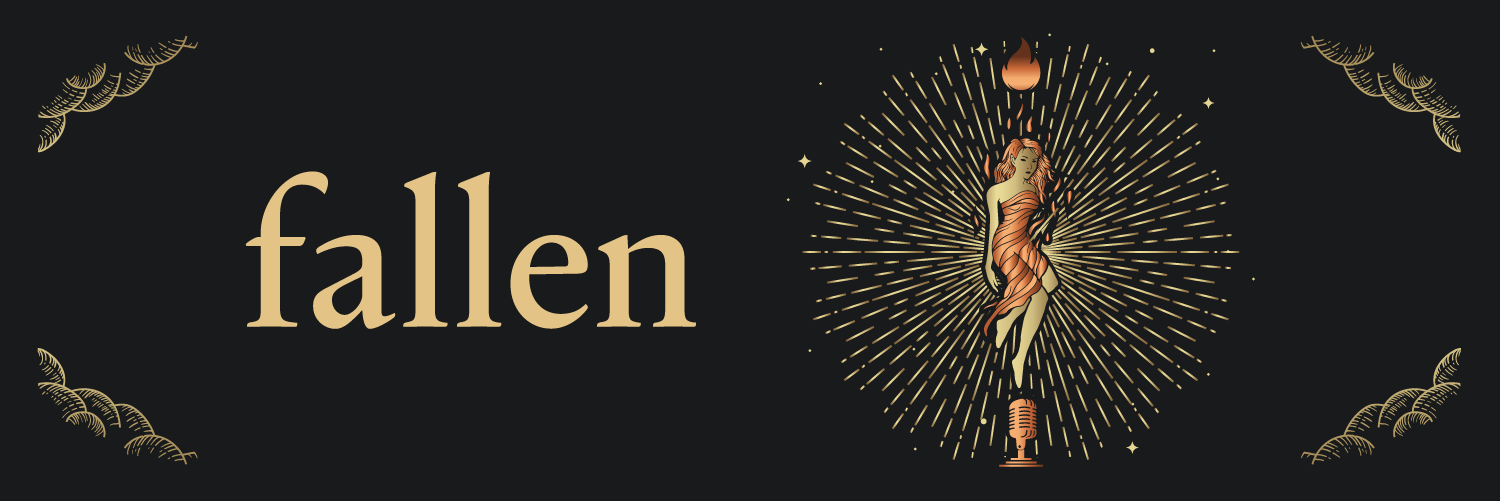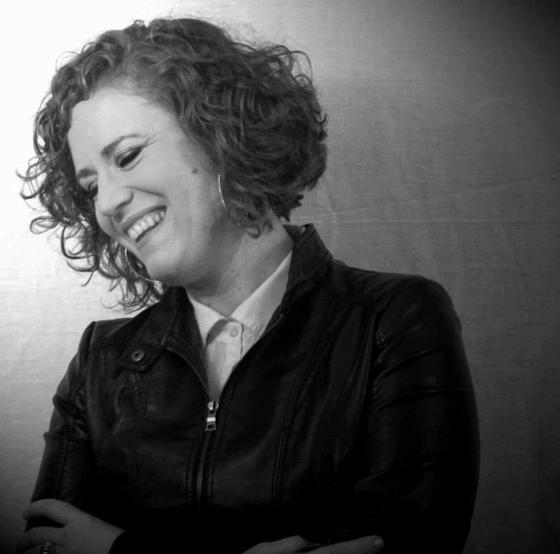In This Story

Professor Theresa Ohanian recently appeared as a guest speaker to two class sessions of Theater 150: Global Theater Histories I to discuss her artistic inspirations and processes for adapting, devising and directing this production of fallen. George Mason University’s School of Theater is committed to providing students educational opportunities that bridge their classroom learning to practical theater experiences. Connecting what students learn about Theater in the classroom to the actual practice of the art form prepares them for a multitude of career pathways once leaving Mason.
The following article is an edited compilation of Professor Ohanian’s answers to questions posed during her class visits, and as recorded by students in the class. Professor Ohanian’s answers have been edited and arranged by Professor Elizabeth Alman, instructor of THR 150 for coherence and length considerations. A debt of gratitude is extended to Professor Ohanian for her generously giving her time to the class visits and also to the students in THR 150, whose note taking prowess helped to make this article possible.
Question 1: As a playwright what social justice issues do you investigate in fallen? How do these differ from the issues raised by your inspiration for fallen, Euripides’ The Trojan Women?
Professor Ohanian: Trojan Women is really a story from the male perspective of the effects of war. In fallen, the focus turns to the examination of the victims of war, the women who are left after all the Trojan men have been killed and the city of Troy is sacked by Greek forces. All the women face a bleak future. For fallen I wanted to give these women more of a voice, to give them more agency in these dire circumstances, for them to try to take back control of their lives. I wanted to deeply investigate the journey of each of these female characters in a way that ultimately gives each of them a more complete arc and ending. Also, my familial history includes family members’ experiences of fleeing their homes and country of Armenia due to genocidal threats. That history resonates through me, the displacement from home and country, I feel I’m honoring my family by developing a play with these themes.

QUESTION #2 Can you share the ways you changed the characters, plot, location, or action of the play to suit the needs of the story you wanted to tell?
Professor Ohanian: In fallen, I wanted to address more modern events and issues of women displaced by war, to make it not only about what happened to women in Ancient Greece. Essentially, fallen can take place in any time so long as it’s a post-war period, in a way it becomes timeless, it can be copied and pasted into the context of different wars. In particular, I didn’t want to take the audience back in time to view something as ‘had happened’ but to center the fact that, oh god, this is still happening, today. I also wanted to explicitly explore how these captured women are dehumanized and commodified by the brokers of war.
For fallen, I substituted the chorus of Euripides’ Trojan women with two new characters, Rose and Marina. All the other female characters from Euripides’ play are members of the nobility. I wanted to draw two characters who could potentially represent every woman or common folk. The aim is for the audience to enter this world of fallen through these two characters’ eyes, to be able to see themselves represented in their journey.
Another big change in this adaptation is that there is a third part of the play that was formed in part by a two-day intensive devising workshop with Mason students held earlier this semester. I wanted to find out what the current generation considers most important to them and give voice to those concerns about this topic. The students’ devised contributions to this piece make the tapestry of the work that much richer and more intricate.
QUESTION #3 How did your personal and social identities affect the writing of fallen?
Professor Ohanian: As I mentioned earlier, coming from an immigrant family with survivors of genocide makes working on this play an opportunity to honor my family’s story, to include their experience and perspective into the work. Additionally, I possess a lived experience that includes a personal experience with trauma and PTSD. This helps me have an informed perspective when dealing with directing and staging moments of physical, mental and emotional trauma as represented in the text. Our production is fortunate to have Intimacy Coach and Fight Choreographer Lorraine Ressegger Slone working on the production. Collaboratively, we can help ensure students are cared for while experiencing and playing these challenging moments in the text. Finally, I think part of my work on fallen stems from the desire to see all women support each other as the female characters do in this play.
QUESTION #4 How did you change the source play in order to see yourself, your community or your culture represented within the play’s narrative?
Professor Ohanian: The idea for fallen really began about eight years ago, I had moved to Canada to start a graduate program. And to be honest, at that time, I possessed a lot of anger towards male identifying people. 2023 Theresa is in a very different place, I’m a newly-wed and I’m teaching in a program where I get to interact with the most amazing students. Also, the older I’ve grown, I realize there are more elegant, evocative and educated ways to say things in a text – that I don’t have to be overly-reliant on vulgarity to make my points. I’ve also realized that adaptation is like improv – you keep trying things until something sticks. I’m so happy I get to revisit fallen this fall, to develop it further, see the work continue to grow and expand with the engagement of Mason students. I feel so lucky to experience how my work as a playwright, deviser and director evolves, that it grows over time, it is never set in stone, and it transforms with me as I age.
